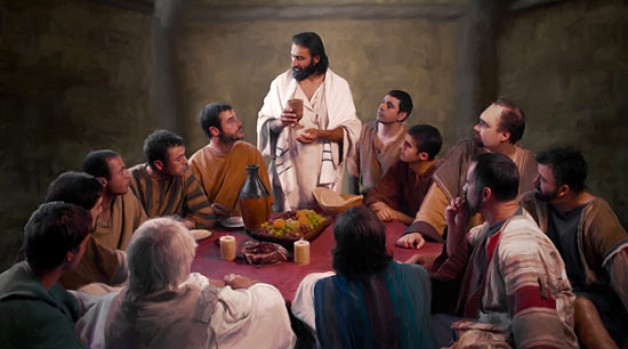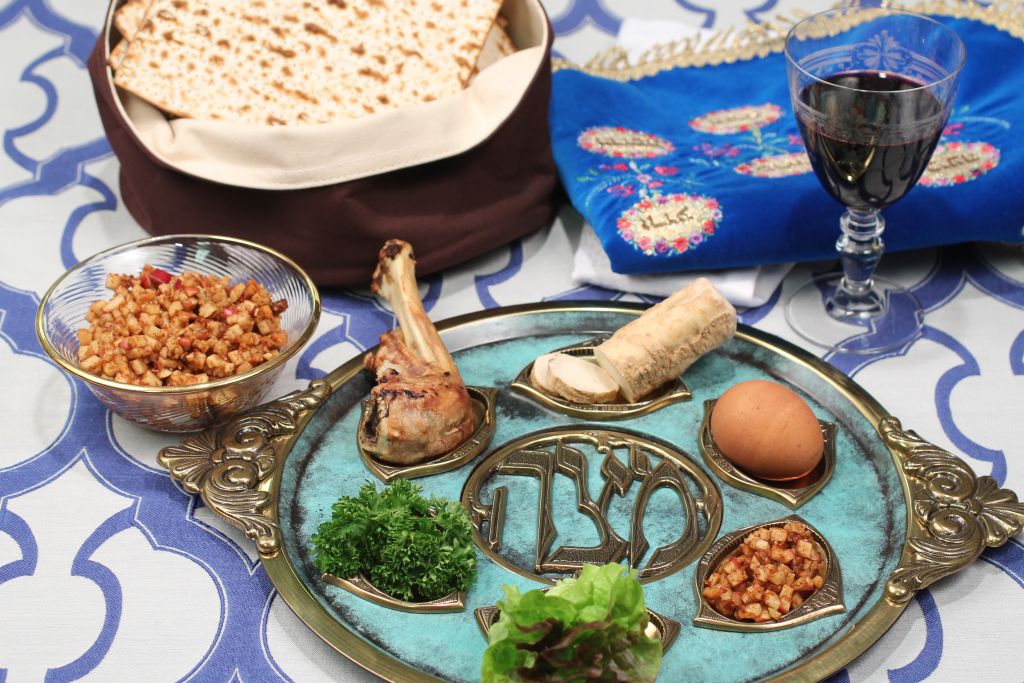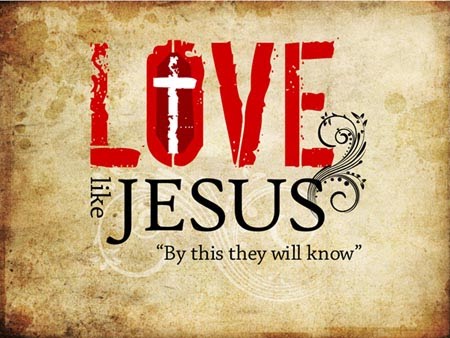
Christianity is not merely a religion. It forms a whole new identity for those who are in the faith and who have been born again through Christ. Because Christianity is also a culture, there are many instances and events in its history that are significant to us. Of the many remembrances for Christians, perhaps the two most distinctive are Christmas and Easter.
However, while Christmas is a time where we remember the birth of Christ on Earth, it is a celebration of which there was a sort of completion in Calvary. Easter, on the other hand, while one of the most momentous events in our past, points forward to a time yet to come. It is suffused with meaning in and for our future.
As we enter into the Holy Week with Palm Sunday, we remember Jesus’s triumphal entry into Jerusalem as a victorious King. Yet, he was unlike any other king. Shari Abbot from Reasons for Hope shared a list of ways Jesus was different from a human king:
-
- Kings rode on horses. This King rode on a donkey.
- Kings were adorned in royal apparel. This King wore the clothes of a humble peasant.
- Kings were accompanied by an entourage of fighting men. This King rode in alone, followed only by a few friends.
- Kings had many servants. This King served many.
- Kings ruled over the people. This King ministered to the people.
- Kings feasted on sumptuous foods prepared for them. This King multiplied fish and loaves to feed others.
- Kings wore crowns of gold and precious gems. This King soon wore a crown of thorns.
- Kings made loud proclamations and the people were silent. This King was stood silent when the people yelled, “Crucify Him.”
- Kings were protected at all costs. This King soon gave His life paying the cost of all sin.
Just a week after that triumphant procession, Jesus would give his life as a ransom for many. Shari wrote, ‘When Jesus rode into Jerusalem on that Sunday afternoon, He began His journey to the cross. The date was Nisan 10 on the Jewish calendar. It was the day in which the lambs were selected for the annual Passover sacrifice. On Nisan 14, Jesus Himself became that sacrifice. Jesus was the perfect Lamb of God, and He became the Passover Lamb, sacrificed for the sins of the world. Today, Jesus still is the perfect Lamb of God, whose blood covers sin and washes man clean.‘

The Lamb of God and The Communion of the Last Supper
There were many events in Jesus’ last days on Earth, each of which had significance, some of which we may not be conscious of, and some of which we may have forgotten. Nevertheless, arguably the most memorable of these is Jesus’s last supper with His disciples. The Last Supper is known to Christians by many names; now and then as The Lord’s Supper, but in my opinion, more meaningfully as The Lord’s Supper Communion or the Holy Communion. For that was what it was, a holy communion between the Son of God and His disciples, and through their spreading of the gospel later, to the whole of mankind.
It is noteworthy that every single one of the three Gospels that mention the Last Supper communicates to us that Jesus’ crucifixion occurred near the Festival of Passover, and that the Holy Communion was in the shape of a Passover Meal. A key to seeing the place of the Last Supper as an eschatological element, pointing to the Last Days, is in understanding the Passover.

For the Israelites and the Disciples, the Passover had great symbolism. The original Passover had taken place in Egypt during the time of Moses. It was the night that the Angel of Death visited that kingdom, bringing death to every first-born in the land, but passing over the Lord’s people, who had been warned in advance to prepare by smearing the blood of a lamb over their doors. The Passover was a reminder of previous bondages and slavery, but more importantly, it was also a celebration of deliverance from death and captivity.
Every element of the Passover meal represented something; the roasted lamb symbolized the lamb that was sacrificed in the first Passover; the unleavened bread, which had to be prepared without a leavening agent and without a single blemish, represented the swiftness of Israel’s departure from Egypt and keeping pure lives; the vegetable which had to be washed first in salt water, the bitter herb, and the fruit-nut paste represented respectively the tears of slavery, its bitterness, and the mortar that the Israelites had used for their bricks.

In addition, the meal was traditionally accompanied with 4 cups of wine. For the Israelites and the Disciples, the cups each had its own representation:
-
The first cup represented the promise, “I will bring you out”. -
The second cup represented the promise, “I will free you from being slaves”. -
The third cup represented redemption and the promise, “I will redeem you.” -
The fourth cup represented completion where God says, “I will take you as my people”.
In Luke 22 (v17 and 20) and Matthew 26:26-29, Jesus indicated the spiritual significance of what He was about to complete through these cups. Like everything God does, He chose the day of the Passover as the day of crucifixion for a special reason. God wanted the Israelites and Disciples to remember the significant event that had occurred in their history.
While the Israelites did not realize the noteworthiness of the fact at that time, it reminds us of something that is much more powerful than the first Passover, not least because this time it was for all of mankind. Today, as Christians, we recognize the import behind each of these elements in a whole new way.
The elements represent something that is more than an event in history; it represents aspects of the spiritual life. Christ sacrificed His life for us 2000 years ago so that we could be free from a life of bondage to slavery and sin. Just as the Israelites had left their lives of slavery behind in Egypt, today Christians are called to leave their old life of bondage and move into their new lives of freedom with Christ.
The Role of the Last Supper as a Reminder in the Christian Life
Jesus’s last supper with His disciples was not just a meal. Through it, Christ interpreted His crucifixion to the Disciples in a Passover context. The breaking of the bread (Luke 22:19, Matthew 26:27) symbolized Jesus laying down His life for His people. Each of the Disciples drank from the cup of wine that He gave them, representing God’s heart for the unity of His people, bringing the Body of Christ together. It is also an important reminder of the importance of communion and the role of Jesus as the key to revival (Luke 22:20; Matthew 26:28). Jesus’ sacrifice at Calvary established the New Covenant between God and His people. Just as the Angel of Death was turned away in Egypt, that act delivered us from eternal death.
This Sunday as we come to church, many of us will be partaking of the Holy Communion. Each time we take the Holy Communion, it should serve as a memorial to what Christ has done for us, and in remembrance that one day He will be coming back to us again. The Lord has established the practice of the Holy Communion to help us remember what He has done for us. It is a reminder of the constant most important things in our lives; the true call of communion, to be as one with and in God, being loved by Jesus and loving Jesus in return, loving our brothers- and sisters-in-Christ in the same way Jesus has shown us.

Remember that Jesus Will Come Back One Day for the Church as His Bride
According to Jewish tradition – the environment in which Jesus lived during His time on Earth – fathers of a couple would meet and agree on a “Bride price”. The groom’s father will bring a cup of wine. When there is an agreement, the groom would drink from the cup and pass to the bride to drink from the same cup. This represents that the couple has made a covenant. After this, the groom will go and prepare a home for their new marriage life. During that duration of time, the bride and her bridesmaids will be waiting patiently for the groom to come back. At the sound of a shofar, she would rejoice knowing that her beloved has return for her!
Like the drinking of the wine from the cup making a covenant between bride and groom, Jesus also make a new covenant as He said “This cup is the new covenant in my blood, which is poured out for you”. So as we drink from the cup, we are reminded that Christ the Groom will be coming back again for His undefiled, faithful and beautiful bride who is His church – the body of Christ.

Just as in the Jewish wedding, where the Bridegroom may leave the Bride for a time to prepare a place for her, would Jesus find us still faithful when He returns? Every time we struggle with issues in life, remember Jesus and be aware of His presence, caring, loving, and guiding us.
Something striking about how the Disciples relate to Jesus also tells us about how we ought to relate to Christ and God. While the other Disciples called Him Lord and Master, Judas consistently calls Christ only Rabbi. The way we relate to God and people shapes much in our lives.
|Share The Good News|




Send me more good news